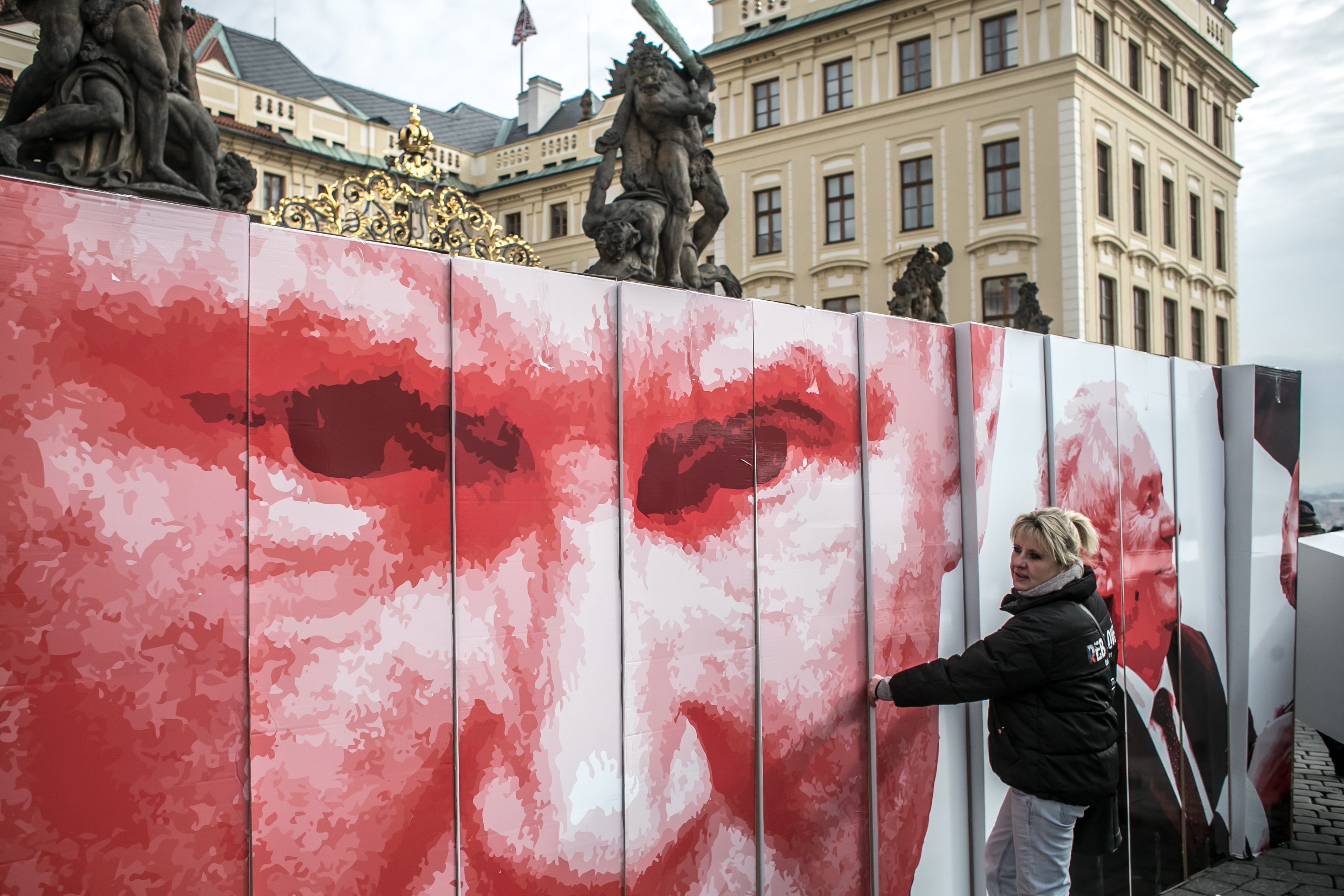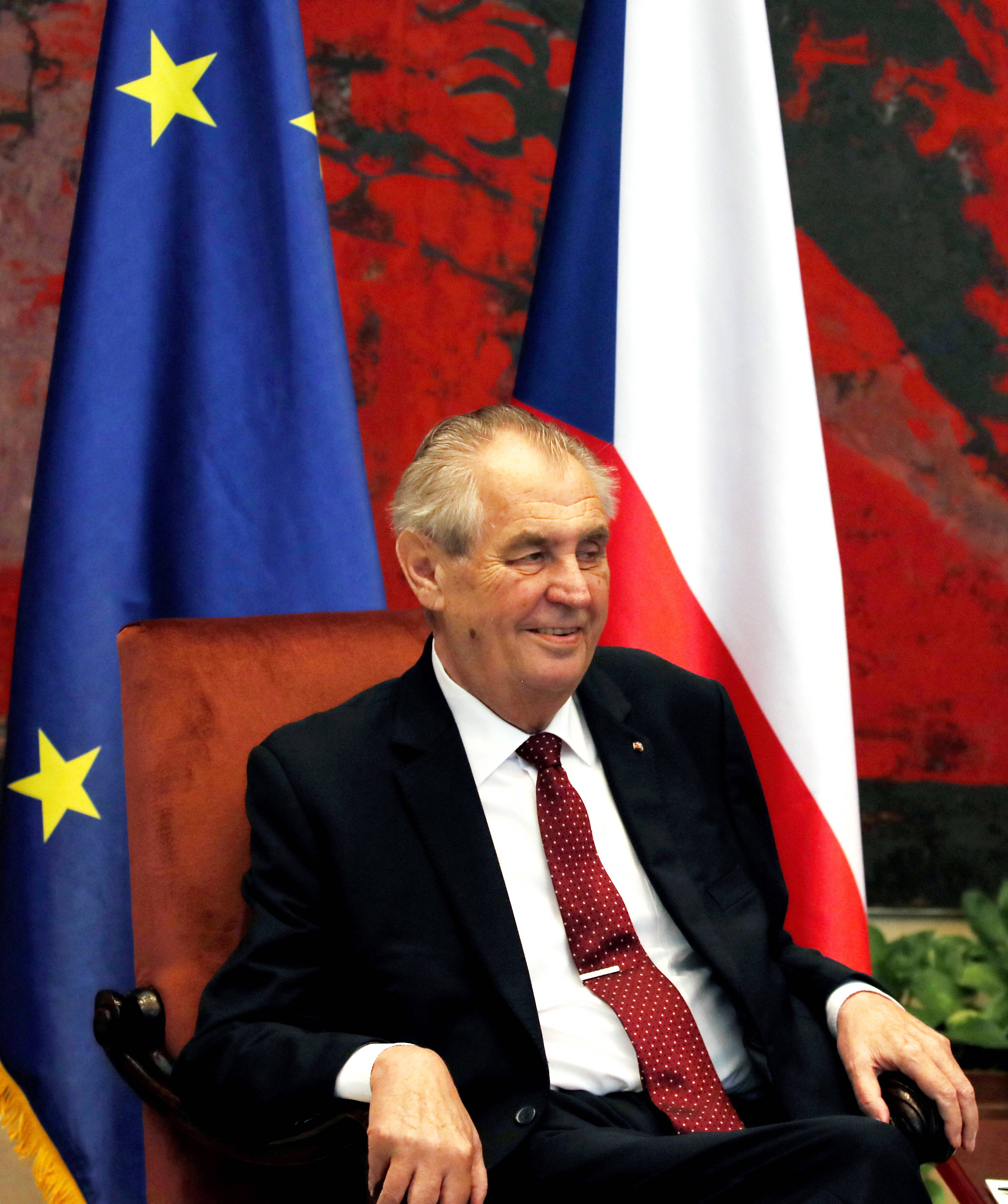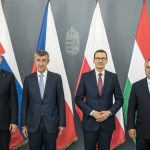THE WARSAW INSTITUTE REVIEW
Date: 4 December 2019 Author: Piotr Bajda, Professor
Are Czechs Russophiles?
In the public domain, Czechs are considered one of the more pro-Russian nations in Europe. Upon closer inspection, however, this portrait is not so black and white.

Indeed, pro-Russian sentiments have a long tradition in Czech lands. One ought to remember that the Czech Kingdom from the sixteenth century was in the hands of the Habsburgs, whose policy of unifying their lands led to the reduction of privileges for the Czech nobility, and above all, the promotion of Catholicism in areas populated by Protestants who still remember the Hussite movement well. It was the events in the Czech lands that were catalysts for the outbreak of the Thirty Years’ War, which devastated half of Europe. At the beginning of the conflict, a cataclysm befell the Czechs, after which they were not able to recover for many years. In November 1620, not too far off from Prague, by Bílá Hora (White Mountain), the imperial army broke up the forces of Protestant insurgents, consisting mainly of local nobility. The remnants of the Czech nobility were deprived of most privileges, castles and land property later given to faithful German-speaking families of Habsburgs, Austrian absolutism was introduced, and the process of re-Catholization began. For the Czechs, the defeat at Bílá Hora was and is still a national trauma, as for the Serbs is the defeat on Kosovo Field or for the Hungarians the Battle of Mohács (in effect, the trauma was further reinforced by the Treaty of Trianon of 1920). However, the most significant consequence of the Thirty Years’ War was the decline of Czech culture, reduced to niche folklore. The lack of attractiveness of the Czech culture at that time may be evidenced by the history of the emancipation movement of Jews at the turn of the 19th and 20th centuries, who chose not the Czech culture as their own but the dominant German culture. That is why Franz Kafka, having lived almost all his life in Prague, did not write a single word in Czech in his works.
This fairly long introduction was necessary, however, to understand a little bit more of the Czech point of view. From the perspective of Prague, dominated by the Habsburgs, in the assessment of recent Czech leading figures and intellectuals resisting the increasingly spreading German culture, every additional potential ally was invaluable. And the Russians have been able to present themselves for years as defenders of the Slovaks, wanting to protect small Slavic nations against Ottoman, Austrian, Hungarian or German oppression. The example of partitioned Poland was not a sufficient warning for the Slavs, and in effect, over time they succumbed to the image created by Russia. That is why the Czechs became one of the most ardent promoters of Pan-Slavism, the idea of subjecting all Slavic nations to the “protection” of the Russian tsarism. Especially the popularity of Alexander I as the conqueror of Napoleon caused the ideas of Pan-Slavists to become part of the Czech political agenda, a topic of discussion of Prague intellectuals and philosophers. The awakener of the Slovak nation, Ľudoít Štúr, also joined this bloc, who wrote in one of his texts rather bluntly that the best scenario for the Slovaks would be to blend in with Russia.
Inclination to favor Russia amongst the Czechs was strengthened by the founder of Czechoslovakia and its first president, T.G. Masaryk, whose anti-Germanism told him to look for all potential allies. In addition, pro-Russian sympathies were strengthened by the origins of the Czechoslovak Legion, the seed of the later national army, which was formed on Russian territory and after numerous vicissitudes, after participating in the Russian Civil War on the side of the Whites, was evacuated to Czechoslovakia. Masaryk’s idea of being closer to Russia entailed his actions aimed at including Transcarpathian Rus, inhabited by Ukrainians and Hungarians, who did not have much in common with the Czechs or Slovaks, in the future Czechoslovak state. The twist of the first Czechoslovakian president was that before a new state was formed with the capital in Prague, Russia changed from tsarist to Bolshevik, but the foundations for strong pro-Russian sympathies were laid.

Further historical research, although difficult because it requires access to Russian archives, could shed new light on the question of whether the suppression of the Prague Spring in 1968 by intervention of the Warsaw Pact forces (and this was the only operation in the history of this alliance) was not intended to spread out the blame onto other nations, so as not to accuse only the Russians of violating international law and suppressing the pro-democracy movement. After all, the Red Army functioned brutally and effectively in Budapest in 1956, but they preferred to involve others in the operation against Czechoslovakia.
An additional factor influencing the Czechs’ attitude towards the Russians is the awareness of being a small nation that does not have enough strength to openly oppose larger nations. Such an attitude was grounded in the Czech Republic especially after the experience of the Munich dictate of 1938, which he aptly described in his perhaps most famous essay by Milan Kundera. A characteristic feature of small nations is also their far-reaching pragmatism and this one could argue to be one of the more central factors shaping relations between the Czechs and the Russians.
For years, the Czech Republic has been a place where Russians visit most often and not just for short tourist getaways. According to official data, over 40,000 citizens of the Russian Federation cite the Czech Republic as their permanent residence. The Czech Republic is the fourth most popular settlement place for the Russians, after the USA, Germany and Latvia. For some of the Russian newcomers, obtaining a right to reside in the Czech Republic is a kind of insurance policy for the private property they have accumulated if they fell to the rulers in Russia. According to other statistics, over 15,000 companies registered in the Czech Republic are owned by Russians, although the capital invested by them is not that impressive, as it does not exceed EUR 400 million. Some Czechs do complain that the influx of Russians is pushing property prices in the main city to sky-high values, but most see nothing wrong in the Rubles invested on the Vltava River. The Czechs will be offering a high standard of living for a long time to the Russians for a relatively small price, so this is the place chosen by the middle class, which cannot afford to live at the same level in London, New York or Berlin. But this hospitality, however, has certain limits and in recent weeks public opinion may have heard of several spectacular actions aimed at the Russians operating on the territory of the Czech Republic.

Unlike the Slovaks, who in this case are relatively passive, and Hungarians, who in this case are relatively reluctant, the Czechs, with openness to Russian investments, are sensitive to any attempts to cross the red line and actions that are to the detriment of national security. Firstly, they are aware of the threats, and the role of Prague as a new center of Russian activities going beyond their territory. Nearly 50 diplomats and 80 technical support staff work at the Embassy of the Russian Federation in Prague (in addition, the Russians have a consulate in Ostrava, Brno and Karlovy Vary). This is quite a lot for a country of ten million, definitely more than in Budapest or Bratislava, and only a little less than in Warsaw. A tourist attraction that adds a bit of spiciness is the little-known history of the building of the Russian Embassy in Prague, which is located at Náměstí Pod kaštany nr. 1, which was the seat of the Gestapo during the German occupation.
This overrepresentation of Russian diplomats for several years to decision-makers and a broader opinion is highlighted by the Czech counterintelligence Security Information Service, or Bezpečnostní informační služba (BIS), in their annual reports publicly available. Articles appearing in the media are increasingly stating that a large proportion of Russian diplomats are suspected of having links with their intelligence services, and Prague itself has overtaken the role of Vienna as the center of espionage in this part of Europe. In its annual reports, BIS does not hide that it considers the measures taken by the Russian Federation and China to be the greatest threat to the security of the Czech Republic (in this order ). BIS directly indicates that the Czech Republic is the target of Russian hybrid operations, and Russian secret service officers operate under diplomatic cover to source sources and gain access to strategic classified information.
It should be noted that the Czechs have long been aware of the hybrid war carried out by Russia today against the broadly understood West. At the beginning of 2017, as part of the structure of the Ministry of the Interior, a special unit was established to operate the Counter-terrorism Center and Combating Hybrid Threats, or Centrum Proti terorismu a hybridním hrozbám (CTHH) , and in August of the same year, the National Office for Cybernetic and Information Security, or Nádrodní úřad pro kybernetickou a informační bezpečnost (NÚKIB) responsible for cyber security and protection of classified information. Of course, none of the supporting documents explicitly state that this is a response to threats from the Russian side, but when publishing information about new institutions, the national security audit in the Czech Republic was cited and published at the end of 2015, where specific threats were discussed in greater detail.
Support Us
If content prepared by Warsaw Institute team is useful for you, please support our actions. Donations from private persons are necessary for the continuation of our mission.
But not only in reports does BIS fight against Russian actions aimed at Czech security. Prague took advantage of the possibility of firing four Russian diplomats suspected of having contact with special services after attempting to poison Sergei Skripal, thus responding positively to the British call to allies for diplomatic retaliation, which Slovakia, for example, did not choose. And in recent weeks, the media has widely reported on the operation of the Czech services, which resulted in the breakup of a group of Russian hackers operating undercover in two IT companies.
The pro-Russian image of the Czechs is also at odds with the activity of numerous expert centers and various types of associations exposing Kremlin propaganda and channels disseminating them. The most interesting cases include the think tank European Values Center for Security Policy, or Evropské hodnoty, which features a launched ‘Kremlin Watch’ program, showing Russian activity in a public space.
And although the Kremlin propaganda is on its backfoot, the Russians are not among those who easily give up. They still enjoy abundant opportunities to try to impose their narrative. On the one hand, they can count on the understanding approach of President Miloš Zeman. The Russian point of view on many international issues is shared by the majority of deputies representing the Czech communists (Komunistická strana Čech a Moravy, KSČM, the Communist Party of Bohemia and Moravia) and the right-wing populist party of Freedom and Direct Democracy (Svoboda a přímá demokracie, SPD, Freedom and Direct Democracy), headed by Tomio Okamura, a politician with Japanese-Czech roots. The sputnik.cz portal is active in the media, the website www.parlamentnilisty.cz and several others are also included in the pro-Russian media. The Embassy of the Russian Federation in Prague can always count on a group of social activists or scientists from smaller academic centers who can organize events in line with Russian narrative. For example, two years ago, in November 2017, a ‘scientific’ conference was organized in Prague titled ‘Is Russophobia the 21st Century Anti-Semitism?’, which was promoted by, among others, the aforementioned parliamentary portal.
Fortunately, in the Czech ruling elite, one can notice a growing awareness that the Kremlin is not a friend of the EU and NATO. Only setting a border delineating a clear red line can be an effective message that if it is crossed, the aggressor will be met with a firm response. The group of such thinking decision-makers not includes only President Zeman, but his actions that have been limited to punishing BIS head Michał Koudelka by blocking his nomination to General for several years, or words of harsh criticism against the interior minister that decided the opening of the hybrid threat center – CTHH.
So the Czechs will remain sensitive to Russian culture, open to Russian investments and the money flowing behind it, but Russian spies do not and will not have it as easy as we might think at first glance.
_________________________________
All texts published by the Warsaw Institute Foundation may be disseminated on the condition that their origin is credited. Images may not be used without permission.














